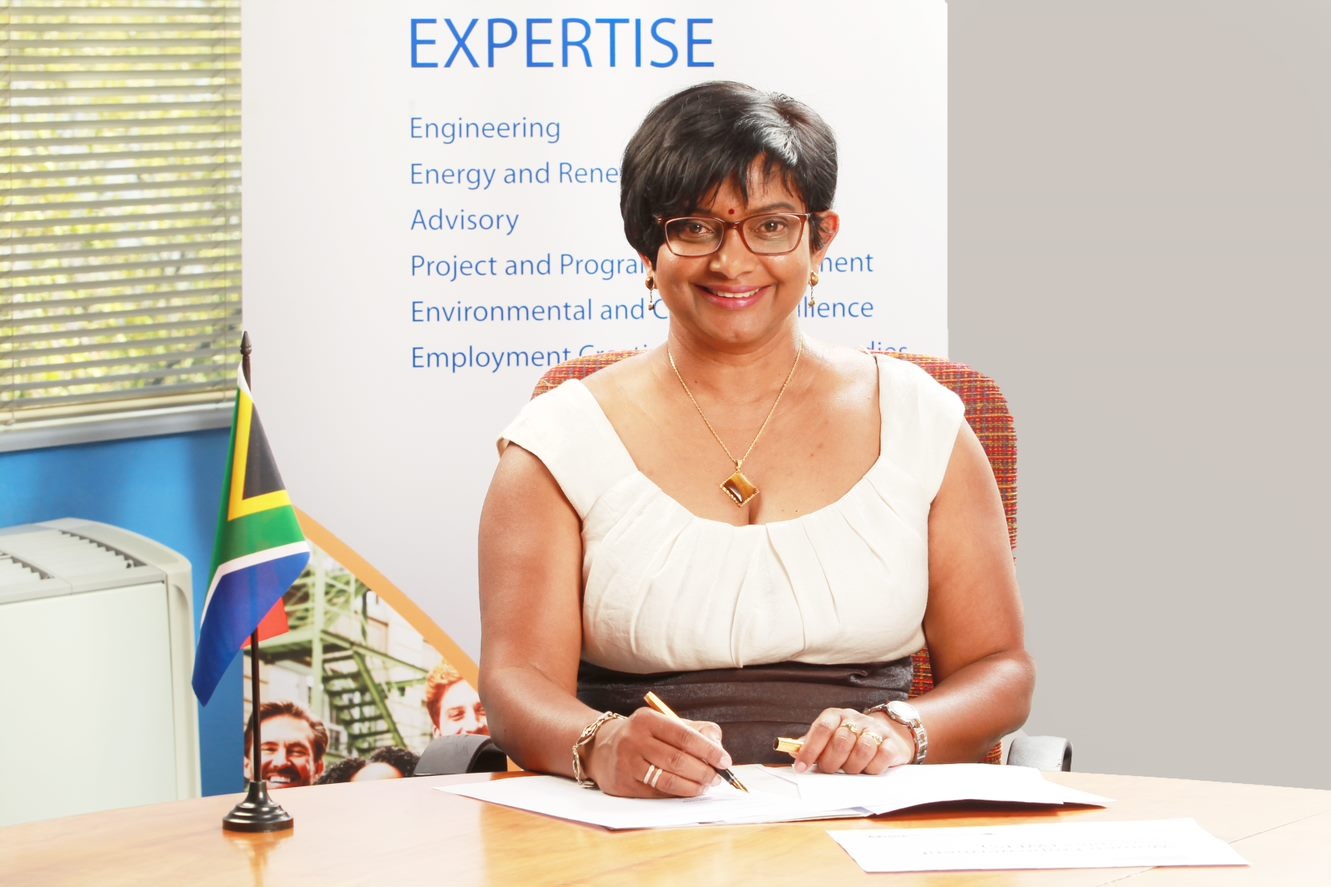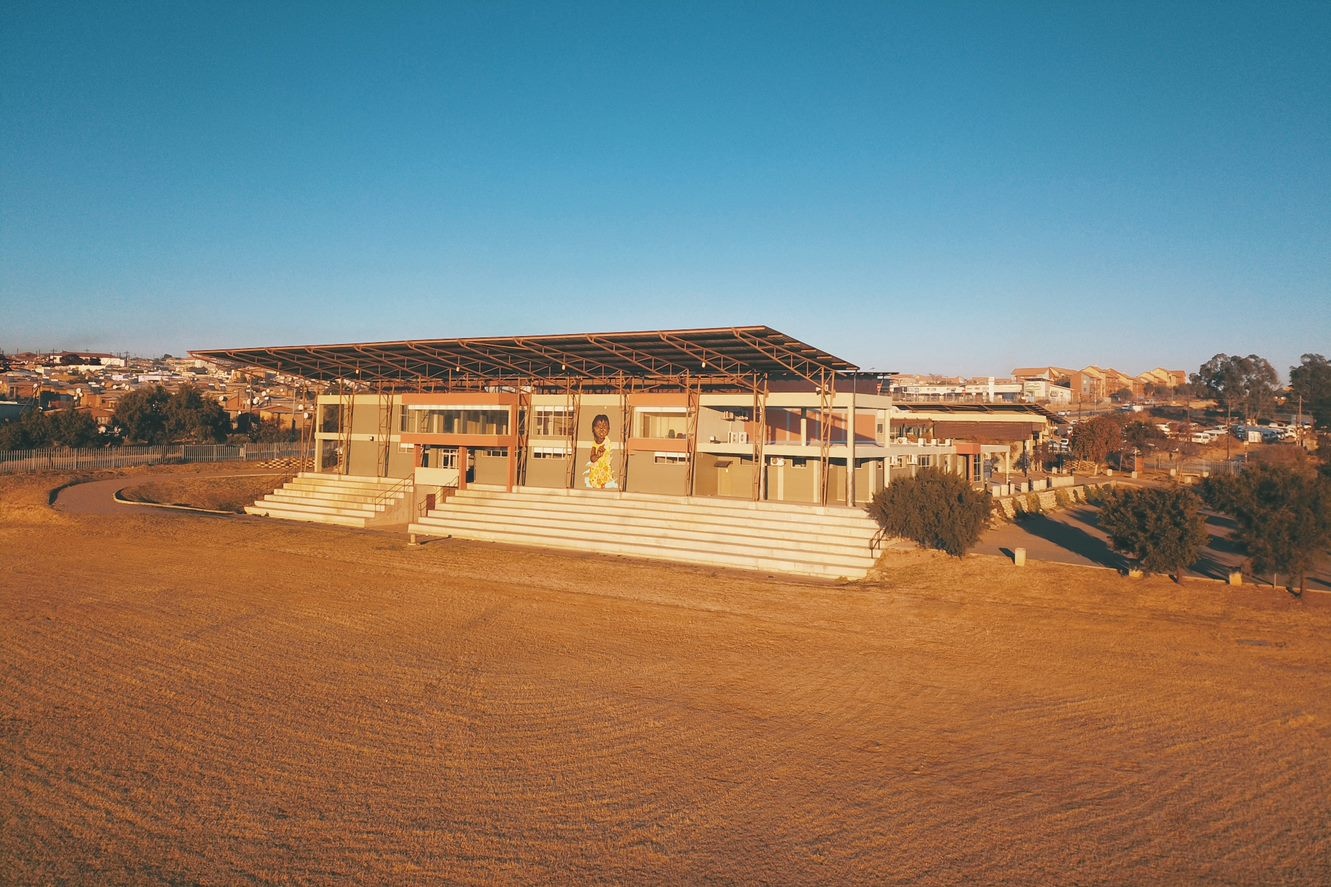As a woman who has succeeded in standing out in a world led by men by developing the largest female-owned and managed consulting engineering company in both South Africa and the entire continent, Malani Padayachee, founder of MPAMOT, has earned recognition for her strong track record for embracing innovation and new ways of responding to society’s challenges.
MPAMOT is involved in feasibility studies, preliminary and detail designs, tender documentation, and project management for various public sector clients in South Africa. For Malani Padayachee, civil engineering is a sector that is perfectly suited for women’s involvement and she has done her best to encourage this. In fact, the decision to extend her own business by purchasing the Mott MacDonald Africa company has stimulated a strong sense of empowerment among women and increased the visibility of role models in the industry.
The DevelopmentAid team had the opportunity to get to know Malani’s story during a Hero Stories interview aimed at revealing the interesting and inspiring details of her experience and news of future projects.

MPAMOT has a story behind it, the story of a woman keen to bring change to the civil engineering sector in terms of diversity and gender equality and to do things differently for the world by providing appropriate solutions to meet society’s needs. As an engineer herself, Malani has found she is in a position to constantly evolve, which makes her job even more exciting, as she repeatedly highlighted during our interview. Starting her own company seemed a challenging concept but it became increasingly achievable after working in the United Kingdom (UK) for McDowell Consulting. This experience made her realise just how competent South African engineers are.
South African background
South African civil engineering professionals are well placed due to their connection to the wide range of services provided and the ability to function in various environments. MPAMOT delivers solid insights at all levels, be it informal settlements in a rural context or very complex problems in an urban city environment.
“The kind of projects I was exposed to in the UK and the experience gained in South Africa offered me a huge advantage compared to my UK colleagues.”
The opportunities are limited in first-world countries where projects involve the rehabilitation and remedial work required to solve new challenges. Unlike these countries, others will be unable to have robust systems or models in place for the next 15 to 20 years with urban environments constantly changing due to internal migration problems, thus a holistic approach is required.

“I have always seen engineering as my passion and not my work. I do believe that civil engineering offers so many areas to exploit, where things can really be changed in a profound way. For example, through urban infrastructure, we have the opportunity to influence things in a really big way. It is exciting because you can shape the way society lives. Unfortunately, sometimes we ignore the fact that we are actually designing and planning for people and people do need to be at the core of our developing perspectives.”
One of the main challenges in South Africa that was mentioned during the interview is the impact of internal migration on the engineering sector with people moving from rural to urban areas. The dynamic of the movement dictates the trends in the infrastructure and, thus, civil engineering constantly evolves and is repurposed.
Following this argument, Malani underlined the importance of women’s role in civil engineering. She believes that women tend to be more sensitive and better understand the dynamic of diverse teams and provide solutions that come naturally. However, females represent barely 4% of those working within the field of civil engineering.
“Diverse groups are able to deliver comprehensive solutions that are responsive to a whole spectrum of people. We don’t have just a concentration of old people or a concentration of young people. We have diverse communities. Women tend to embrace certain commitments in specific directions and that’s important. When planning a project designed for people, a woman will think about where the kids will go to school, whether safety requirements are respected on those roads, and other little things that will come naturally”, Malani declares, to support her argument in favour of having diverse skilled teams.

Being result-oriented, from the very beginning of her career Malani refused to speculate on her success as a woman. She channelled her efforts towards improving her skills and becoming a valuable specialist.
“I didn’t have any females around at that time, even as role models. I didn’t want to be recognized as moving ahead purely out of consideration”, she stated.
However, the industry dynamics are changing. Malani, for example, has strived to increase the female representation in her company, and now 41% of the company’s employees are women.
Time, commitment and the size of the company form the recipe that ensured the recognition of Malani as a leader of the sector. This happened in 2020, when the company she founded 24 years ago, MPA, acquired Mott MacDonald Africa. Currently, MPAMOT has two regional offices based in the same province and one office outside the country in Lesotho, which is involved with a large water project.
The Mott MacDonald acquisition provided the backdrop to be able to grow the company and become a strong business entity in South Africa and on the African continent.

“Becoming MPAMPOT expanded the organization from 40 to 200 employees practically overnight. For a long period, we had around 40 employees and it is only since when we went to 200 people that we have been recognized, despite having been in the industry for years. And we were very active in the industry as well, I must add. This merger allowed us to become a quite strong entity in South Africa and on the continent. There might be other females out there who are doing an exceptional job but because they are small entities and haven’t been in business for very long, they are not going to get the recognition they deserve.”
“If you are a start-up, you receive lots of support. Once you migrate to another level, there is not much support. You are in that middle-of-the-road scenario; you are on your own. However, in my opinion, it is those businesses that need most of the attention and support. In the South Africa context, in terms of consulting practices, you will find that 80% of businesses are small companies. It’s very few of them that go beyond 50 employees. A similar situation can be noticed on the African continent as well.”
Even though the relationship with Mott MacDonald is very strong, Malani wants to stay focused on working on different partnering arrangements. MPAMOT has recently signed a collaboration agreement with another female-owned business that will soon be announced. MPAMOT’s development perspective is to strengthen its position on the continent and yet offer professional skills at a global level.
COVID-19 – time to start planning differently
“We represent the sector that should be busy now but instead lots of projects have been put on hold. At the same time, the pandemic is giving us an opportunity to start planning differently. We need to have integrated societies, the middle class needs to be reinforced, the gap between the haves and have-nots should be reduced. There are a lot of solutions that can be implemented immediately. There is a huge opportunity to address unemployment, for example. If big businesses take certain initiatives, you could immediately link these young people to valuable opportunities.”
Talking about the future, Malani insisted that the present situation could be taken as a useful experience to build a more resilient society.

“We are also planning to be more involved with development finance institutions. We’ve been successful in some of the projects and, as a South African company, we have solutions that can be adapted for everyone on the continent. I do believe that available funding could go to more people, to bring solutions, to make things different, to be responsive rather than reactive. If we really want to be proactive in these initiatives, why not to pull out the resources to reach more people?”
“We must take this opportunity and learn from the past in terms of the mistakes that have been made. We need to very quickly find solutions that will work. We need to do this collectively. As long as countries compete for different agendas, we won’t be able to achieve the desired results. The current generation needs to be encouraged to bring about that change. We need to come together as a sector to provide the most appropriate solutions.”
This is how Malani Padayachee, founder of MPAMOT, ended another episode of the Hero Stories from DevelopmentAid, showcasing the contribution of the civil consulting engineering sector towards a better society. Stay tuned to the DevelopmentAid articles and discover inspiring personalities.

